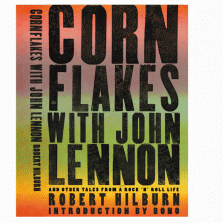Albums:
The Dead Weather’s “Sea of Cowards”
√ Bob Certified
Depending on your perspective, “Sea of Cowards” is either the second Dead Weather album or the 10th Jack White studio album. Either way, the collection is a sonic blast in the truest sense of the term. When the foursome unleashed a tenacious blues-rock rush the first time out, it was exhilarating but, in retrospect, a bit tentative—more like an experimental step than a committed one. Here, there is no holding back. There is confidence and authority in every note.
From the start years ago in Detroit, one of the primary themes in White’s work has been finding emotional balance (and truth) in a fragmented world. One aspect of that balance has dealt with one of rock’s most enduring subjects: sex. In the Stripes, White showed he could be as macho and aggressive as Zeppelin yet also tender enough to display a vulnerable, even feminine side.
Part of the strength in Dead Weather is that White has found a singer in Alison Mosshart who has an intensity and range so close to his own that their voices are almost interchangeable in several songs, thus enabling him to bring together his masculine and feminine sides in forceful, illuminating ways. It feels all the more urgent because of the torrent of siren-esque blues and rock strains that frame the vocals. Guitarist Dean Fertita and bassist Jack Lawrence serve White’s aims as expertly as the raw, passionate Mosshart.
It almost doesn’t matter who is singing the line “I love you the most, I do/ When you’re so close to me/ I can smell the gasoline,” because the lines capture the way men and women can both be consumed with incendiary passion. Similarly, there is no separation between the male or female role in “The Difference Between Us,” the most reflective song on the album: “I’m not the way you found me/ I’m neither here nor there/ One day I’m happy and healthy/ Next day I ain’t doing so well.”
There’s no song here like “Seven Nation Army” to seduce a mass rock audience, but that audience is so splintered these days that it may be impossible, given the current state of the record industry, for anyone to bring it together the way the great musicians once did. What White and his mates in Dead Weather are doing is reminding us that rock at its most powerful is neither conventional nor safe. It is the voice of extremism, fueled with an optimism and faith that music can still touch the heart and stir the imagination—and that albums, not just individual tracks, do matter.
At times, you get the sense in “Sea of Cowards” that White is intent keeping the flame alive in hopes that the mass rock audience awakens from its slumber. If that audience does resurface, White—with Dead Weather, the Stripes or whatever other reincarnation—will be ready to once again reach out and lead it.
The Dead Weather’s “Sea of Cowards”
√ Bob Certified
Depending on your perspective, “Sea of Cowards” is either the second Dead Weather album or the 10th Jack White studio album. Either way, the collection is a sonic blast in the truest sense of the term. When the foursome unleashed a tenacious blues-rock rush the first time out, it was exhilarating but, in retrospect, a bit tentative—more like an experimental step than a committed one. Here, there is no holding back. There is confidence and authority in every note.
From the start years ago in Detroit, one of the primary themes in White’s work has been finding emotional balance (and truth) in a fragmented world. One aspect of that balance has dealt with one of rock’s most enduring subjects: sex. In the Stripes, White showed he could be as macho and aggressive as Zeppelin yet also tender enough to display a vulnerable, even feminine side.
Part of the strength in Dead Weather is that White has found a singer in Alison Mosshart who has an intensity and range so close to his own that their voices are almost interchangeable in several songs, thus enabling him to bring together his masculine and feminine sides in forceful, illuminating ways. It feels all the more urgent because of the torrent of siren-esque blues and rock strains that frame the vocals. Guitarist Dean Fertita and bassist Jack Lawrence serve White’s aims as expertly as the raw, passionate Mosshart.
It almost doesn’t matter who is singing the line “I love you the most, I do/ When you’re so close to me/ I can smell the gasoline,” because the lines capture the way men and women can both be consumed with incendiary passion. Similarly, there is no separation between the male or female role in “The Difference Between Us,” the most reflective song on the album: “I’m not the way you found me/ I’m neither here nor there/ One day I’m happy and healthy/ Next day I ain’t doing so well.”
There’s no song here like “Seven Nation Army” to seduce a mass rock audience, but that audience is so splintered these days that it may be impossible, given the current state of the record industry, for anyone to bring it together the way the great musicians once did. What White and his mates in Dead Weather are doing is reminding us that rock at its most powerful is neither conventional nor safe. It is the voice of extremism, fueled with an optimism and faith that music can still touch the heart and stir the imagination—and that albums, not just individual tracks, do matter.
At times, you get the sense in “Sea of Cowards” that White is intent keeping the flame alive in hopes that the mass rock audience awakens from its slumber. If that audience does resurface, White—with Dead Weather, the Stripes or whatever other reincarnation—will be ready to once again reach out and lead it.


 RSS Feed
RSS Feed


